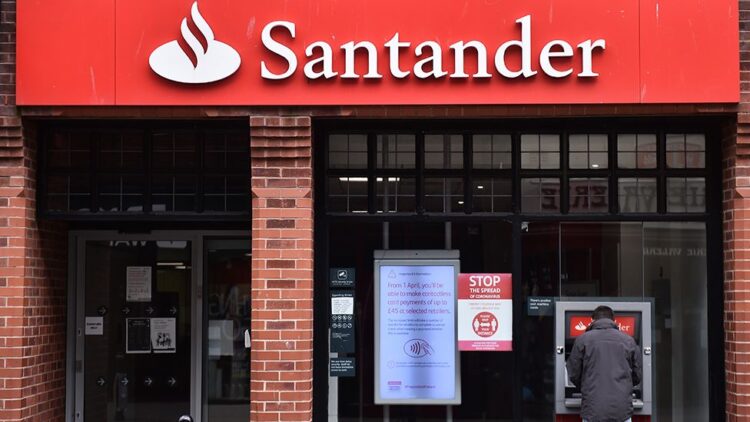By James Simons-
Satander has been fined £107.7m over “serious and persistent gaps” in its anti-money laundering controls which opened the door to “financial crime”.
The financial watchdog said the bank “failed to properly oversee and manage” systems aimed at verifying information provided by business customers.
The failings affected the oversight of accounts held by more than 560,000 business customers between 31 December 2012 and 18 October 2017, and led to more than £298m passing through the bank before it closed accounts.
The Financial Conduct Authority (FCA) imposed the £107.7m penalty after an investigation found that between December 2012 and October 2017 the bank failed to “properly oversee and manage” the controls that affected the oversight of more than 560,000 business customers.
The FCA said more than £298m passed through business accounts at the bank that had received “red flags” over suspicious activity that Santander had failed to act upon.
“Santander’s poor management of their anti-money laundering systems and their inadequate attempts to address the problems created a prolonged and severe risk of money laundering and financial crime,” said Mark Steward, the executive director of enforcement and market oversight at the FCA.
The watchdog cited a case of a new business customer who opened an account as a small translations business, with the expectation of monthly deposits of about £5,000, which within six months become a conduit for the movement of millions of pounds to other accounts.
The bank’s own anti-money laundering (AML) team recommended the account be shut but “poor processes and structures” meant this was not acted upon for 18 months.
After law enforcement asked Santander to keep the account open to track activity for a month, the bank “failed to keep track of this request” and it remained open until the FCA wrote to Santander about the activity on the account more than a year later.
“Santander takes its responsibilities regarding financial crime extremely seriously,” said Mike Regnier, the chief executive. “We are very sorry for the historical anti-money laundering-related controls issues in our business banking division between 2012 and 2017.”
The bank said that business customers made up only 4% of its entire UK customer base in 2017.
The FCA could have fined Santander as much as £154m, but a 30% deduction was made after the bank agreed to settle and not dispute its findings.
“While we took action to address AML issues once they were identified, we accept that our framework at the time should have been stronger,” Regnier said. “We have since made significant changes to address this by overhauling our financial crime technology, systems and processes.”
Santander also failed to properly monitor the money customers had going through their accounts.
The bank said it was “very sorry” for the failings and had taken action.
Mark Steward, executive director of enforcement and market oversight at the Financial Conduct Authority (FCA), said: “Santander’s poor management of their anti-money laundering systems and their inadequate attempts to address the problems created a prolonged and severe risk of money laundering and financial crime.
Although the account was recommended for closure by the bank’s own anti-money laundering team in March 2014, the FCA said that poor processes by Santander meant that it was not acted upon until September 2015.
As a result, the customer continued to receive and transfer millions of pounds through its account.
Santander chief executive Mike Regnier said: “We are very sorry for the historical anti-money laundering related controls issues in our Business Banking division between 2012-17 highlighted in the FCA’s findings.”
He said the bank took action to address the issues once they were identified, but accepted that its anti-money laundering controls at the time should have been stronger.
“We have since made significant changes to address this by overhauling our financial crime technology, systems and processes, he said, adding that more than 4,400 Santander staff are now focused on preventing financial crime.
Historic Fines To Banks
The biggest UK fine was for NatWest, which was penalised £265m in December 2021 after it admitted three offences of failing to comply with money laundering regulations between 2012 and 2016. It failed to prevent money-laundering of nearly £400m by a Bradford gold trading business, which in one instance deposited £700,000 in cash into a branch in black bin bags.
HSBC was also fined in December 2021, paying £64m after the FCA found “unacceptable failings” in its anti-money laundering systems between 2010 to 2018. The bank had previously been fined £1.4bn for failing to prevent laundering by Mexican drug cartels after an investigation by the US Department of Justice.
In June this year, Credit Suisse was fined for involvement in money laundering related to a Bulgarian drugs ring. It was fined around £1.7m and ordered to pay £15m to the Swiss governments.




